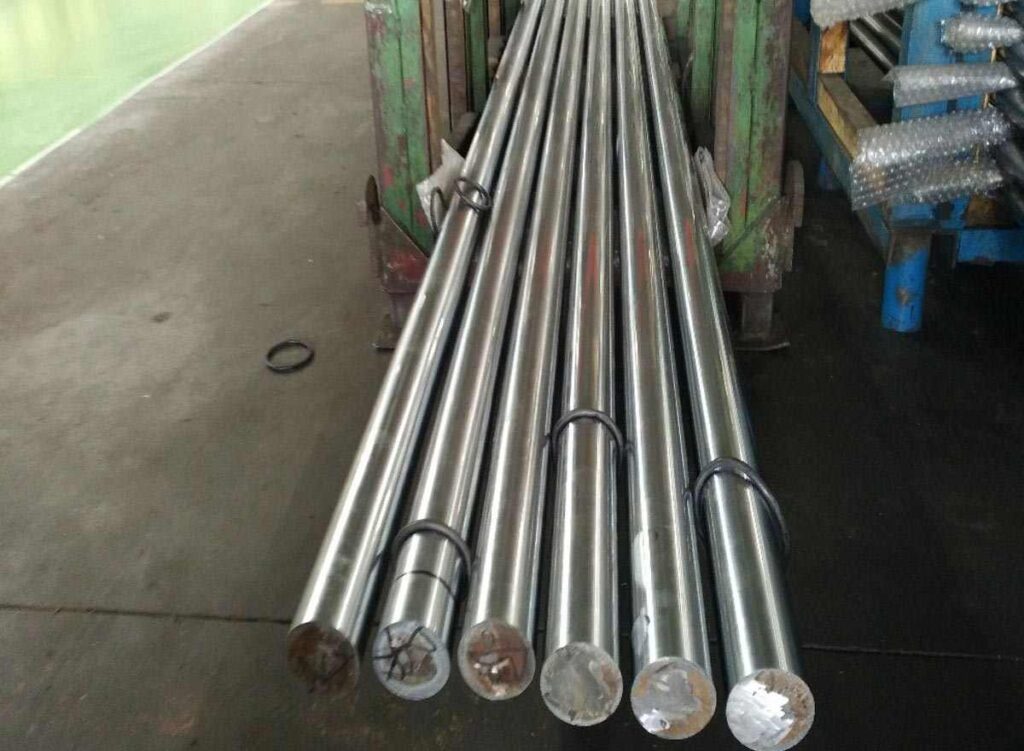Introduction

Selecting the appropriate 01 tool steel round bar is crucial for the success of any project involving toolmaking or manufacturing. With its exceptional properties and wide range of applications, understanding how to choose the right type of 01 tool steel round bar can significantly impact the performance and longevity of your tools. In this comprehensive guide, we’ll delve into the key factors to consider when selecting 01 tool steel round bars for your specific project requirements.
Understanding 01 Tool Steel Round Bars
Before delving into the selection process, it’s paramount to develop a comprehensive understanding of 01 tool steel round bars. This section will meticulously dissect the composition, elucidate the properties, and explore the typical applications of 01 tool steel round bars, furnishing a robust knowledge base indispensable for making judicious decisions.
01 tool steel round bars are engineered with a meticulous composition, predominantly comprising carbon and chromium, with trace amounts of manganese, silicon, and tungsten. This amalgamation engenders remarkable hardness, wear resistance, and machinability, rendering it a quintessential choice across various industrial applications.
In terms of properties, 01 tool steel round bars exhibit unparalleled hardness, registering between 60-64 HRC (Rockwell Hardness Scale), thereby ensuring exceptional resistance to deformation under high-stress conditions. Moreover, its exceptional wear resistance endows it with longevity, making it ideal for applications subjected to abrasive environments.
Additionally, 01 tool steel round bars boast commendable machinability, facilitating intricate shaping and precision engineering. This attribute is particularly advantageous in manufacturing settings where intricate geometries and tight tolerances are paramount.
Factors to Consider When Choosing 01 Tool Steel Round Bars
Mechanical Properties: Mechanical properties like hardness, toughness, and wear resistance are paramount considerations in any project involving 01 tool steel round bars. Hardness ensures that the material can withstand high stress and wear without deformation, crucial for applications where tools endure significant pressure and friction. Toughness is equally vital as it determines the material’s ability to absorb energy and resist fracture, particularly in scenarios where sudden impacts or shock loads are prevalent. Additionally, wear resistance is indispensable for prolonging tool life and minimizing downtime due to wear-related issues. Understanding the interplay of these properties in relation to project requirements ensures the selection of 01 tool steel round bars optimized for performance and longevity.
Size and Dimensional Accuracy: The size, diameter, and dimensional accuracy of 01 tool steel round bars profoundly influence their suitability for diverse applications. Larger diameters may be preferred for heavy-duty applications requiring robustness and strength, while smaller sizes offer greater flexibility and precision in intricate machining tasks. Dimensional accuracy is crucial for ensuring consistency and uniformity in the final product, minimizing rework and enhancing efficiency. Tailoring the size and dimensions of 01 tool steel round bars to specific project requirements guarantees optimal performance and compatibility with manufacturing processes.
Surface Finish and Quality: The surface finish and quality of 01 tool steel round bars play a pivotal role in determining the performance and longevity of tools manufactured from them. A smooth and flawless surface finish mitigates frictional resistance during operation, reducing heat buildup and minimizing wear. Moreover, high-quality surface finishes enhance corrosion resistance, crucial for tools exposed to harsh environments or corrosive agents. Prioritizing surface finish and quality ensures the production of tools characterized by exceptional performance, precision, and durability, thereby maximizing operational efficiency and minimizing maintenance requirements.
Comparing Different Grades and Forms of 01 Tool Steel Round Bars
Provide a comparative analysis of various grades and forms of 01 tool steel round bars available in the market, including differences in composition, properties, and applications. This section may include a table comparing the properties of different grades for easy reference.
| Grade/Form | Composition | Hardness (Rockwell C) | Tensile Strength (MPa) | Yield Strength (MPa) | Applications |
|---|---|---|---|---|---|
| O1 Tool Steel | 0.95% C, 0.5% Mn, 1.0% Cr, W | 62-64 | 600-800 | 330-480 | Blanking, forming, punches, dies, knives |
| D2 Tool Steel | 1.5% C, 0.4% Mn, 12% Cr, W | 58-62 | 700-1200 | 400-900 | Cold working tools, punches, dies, knives |
| A2 Tool Steel | 1.0% C, 1.0% Mn, 5.0% Cr, W | 60-62 | 620-1300 | 550-1000 | Blanking, forming, punches, dies, knives |
Practical Considerations for Specific Projects

Certainly! Let’s delve into some real-world examples and case studies to illustrate how the selection of O1 tool steel round bars can vary based on specific project requirements:
Tool Complexity and Precision Machining: In projects where intricate tooling or precision machining is required, O1 tool steel’s excellent machinability and dimensional stability make it a preferred choice. For instance, in the production of high-precision molds for injection molding, where complex geometries and tight tolerances are essential, O1 tool steel round bars are often selected due to their ability to maintain dimensional accuracy during machining processes.
Production Volume and Cost Considerations: When considering large-scale production volumes, cost-effectiveness becomes a crucial factor. O1 tool steel, known for its relatively lower cost compared to premium tool steels like D2 or A2, becomes an attractive option for projects where high volumes of tools or components need to be manufactured without compromising on quality. For example, in mass production environments such as automotive or consumer electronics industries, where tooling costs need to be optimized without sacrificing performance, O1 tool steel round bars can be a prudent choice.
Environmental Conditions and Corrosion Resistance: In applications where tools are exposed to harsh environmental conditions or corrosive substances, selecting a tool steel with enhanced corrosion resistance becomes imperative. While O1 tool steel offers good wear resistance and toughness, it may not be the best choice for environments prone to corrosion. In such cases, alternative grades like D2 or stainless steels may be more suitable. For example, in marine or chemical processing industries where tools are subjected to corrosive agents, opting for corrosion-resistant tool steels ensures longevity and performance.
FAQs
Q1. What are the main differences between 01 tool steel round bars and other types of tool steels?
A1. While there are various types of tool steels available, 01 tool steel round bars stand out due to their excellent combination of properties such as high hardness, good wear resistance, and adequate toughness. Compared to other tool steels like D2 or A2, 01 tool steel round bars are known for their ease of machining and relatively lower cost. However, they may not offer the same level of wear resistance or edge retention as some other tool steel grades.
Q2. How does the selection of 01 tool steel round bars impact the overall cost and timeline of a project?
A2. The selection of 01 tool steel round bars can have a significant impact on both the cost and timeline of a project. While 01 tool steel round bars are generally more affordable compared to some premium tool steel grades, the choice of the right grade, size, and form can affect material costs. Additionally, factors such as availability, lead times for procurement, and compatibility with machining and heat treatment processes can influence project timelines.
Q3. Are there any common pitfalls to avoid when choosing 01 tool steel round bars for a project?
A3. Yes, there are several common pitfalls to avoid when selecting 01 tool steel round bars:
- Ignoring project requirements: Failing to consider specific project requirements such as mechanical properties, surface finish, and dimensional accuracy can lead to suboptimal tool performance.
- Neglecting heat treatment compatibility: Not understanding the impact of heat treatment processes on 01 tool steel round bars can result in improper material selection and compromised tool properties.
- Overlooking supplier quality: Choosing a supplier based solely on price without considering factors such as material quality, certifications, and reliability can lead to inferior products and project delays.
- Not considering long-term performance: Opting for lower-cost options without considering the long-term performance and durability of 01 tool steel round bars can result in frequent tool replacements and increased overall costs over time.
Conclusion
In conclusion, selecting the right 01 tool steel round bar for your project involves a careful consideration of various factors, including mechanical properties, size, surface finish, heat treatment compatibility, and specific project requirements. By understanding these key factors and making informed decisions, you can ensure the optimal performance and durability of your tools.

